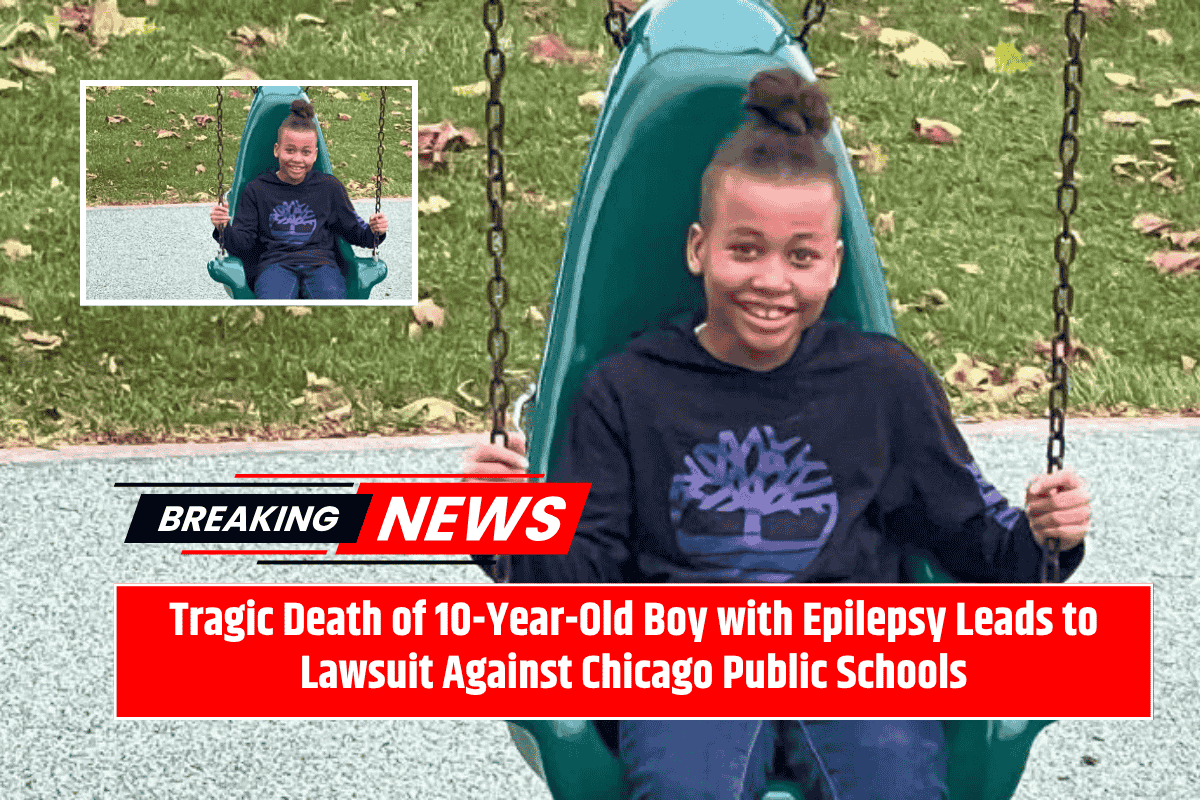A heartbreaking incident involving a 10-year-old boy with epilepsy has led to a lawsuit against the Chicago Public Schools (CPS) system. The boy, Kody Townsend, tragically died after choking on food during lunchtime at his school, Clissold Elementary School in Chicago, on October 18, 2024. His parents have filed a lawsuit, claiming the school’s failure to follow safety protocols and provide proper supervision directly contributed to their son’s death.
Kody’s Special Needs and Safety Plan
Kody Townsend, who had an Individualized Education Plan (IEP) and a Seizure Action Plan, suffered from epilepsy and developmental delays. These plans were specifically designed to ensure he received the proper care and supervision, especially during mealtimes when the risk of seizures and choking was higher. According to the lawsuit, Kody’s school was responsible for providing supervision during meals and having a clear plan for managing his seizures.
Kody’s medical plan included using an implanted device that could stop his seizures, and a designated school staff member was supposed to use a magnet to activate the device when a seizure occurred. If that didn’t work, the school was expected to administer anti-seizure medication or call for a nurse to help. Kody’s parents believe the school failed to follow these protocols, which may have led to his tragic death.
Lack of Supervision and Delayed Response
According to the complaint, Kody was left unsupervised during lunchtime, a violation of the agreed-upon safety measures. The lawsuit claims that Kody began to have a seizure while eating, and during this time, he choked on a piece of food, leading to asphyxiation and cardiac arrest. It took about nine minutes before any seizure protocols were attempted, which Kody’s parents argue was far too long. Furthermore, the school staff failed to act appropriately when initial procedures didn’t work, and they didn’t call for emergency medical services (EMS) promptly.
Additionally, the parents claim that the paraprofessional assigned to supervise Kody was not properly trained or experienced in caring for a child with Kody’s specific needs. The complaint states that the paraprofessional did not offer one-on-one supervision and didn’t inform EMS personnel about Kody’s airway being blocked, which further delayed life-saving efforts.
The Lawsuit and the Family’s Call for Accountability
The Townsend family has named CPS, the Chicago Board of Education, and the City of Chicago as defendants in their lawsuit. They are seeking damages for wrongful death, and the family’s attorney has emphasized the importance of accountability to prevent similar incidents from happening in the future. Kody’s mother, Lakeisha Jones-Townsend, expressed in a statement how her son’s death has impacted their family. She described Kody as a joyful and loving child whose death has left a huge emotional void in their lives.
“This should not have happened,” she said. “No parent should send their child to school in the morning and not be able to welcome them home in the afternoon.” Kody’s parents are determined to raise awareness about the importance of proper care and supervision for children with special needs in schools.
CPS’s Response to the Lawsuit
In response to the lawsuit, Chicago Public Schools issued a statement expressing its commitment to the safety and well-being of its students. However, CPS declined to comment further due to the ongoing litigation. As the legal proceedings continue, Kody’s family hopes that the truth will come to light and that no other family will have to suffer the same loss.
The tragic death of Kody Townsend is a painful reminder of the responsibility schools have to protect their students, especially those with special needs. The Townsend family’s lawsuit highlights serious concerns about the adequacy of care and supervision in schools, especially when it comes to children with medical conditions. It is a reminder that every child deserves to be safe and cared for, particularly when they are in a vulnerable state during mealtimes or other critical times at school.






